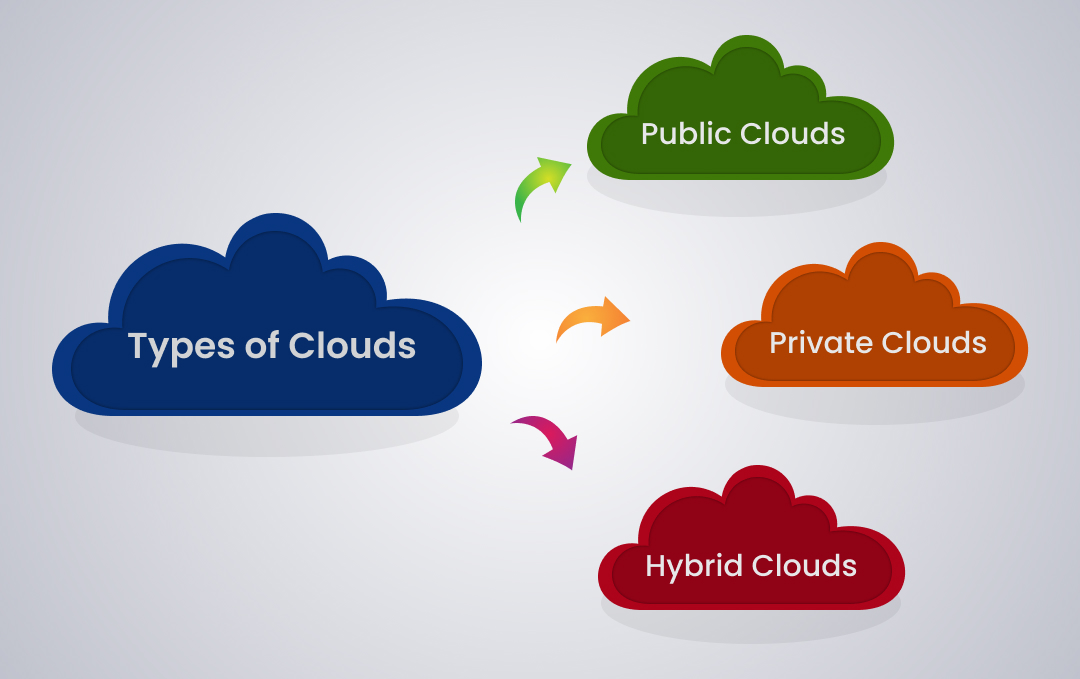Secure Your Information: Dependable Cloud Providers Explained
In an age where information breaches and cyber threats loom big, the demand for durable data safety steps can not be overemphasized, especially in the realm of cloud services. The landscape of trusted cloud solutions is evolving, with file encryption methods and multi-factor verification standing as columns in the stronghold of delicate details. Beyond these fundamental elements lie intricate methods and innovative technologies that pave the means for an even a lot more protected cloud atmosphere. Comprehending these subtleties is not simply an option but a requirement for individuals and companies looking for to browse the digital world with confidence and durability.
Value of Data Security in Cloud Services
Making sure durable data security measures within cloud solutions is vital in protecting sensitive information against possible threats and unauthorized accessibility. With the raising dependence on cloud services for saving and processing information, the requirement for rigid protection protocols has become more critical than ever before. Information breaches and cyberattacks position substantial dangers to organizations, causing economic losses, reputational damages, and lawful implications.
Carrying out solid authentication systems, such as multi-factor authentication, can assist avoid unauthorized access to cloud data. Normal security audits and vulnerability assessments are additionally necessary to recognize and address any kind of powerlessness in the system quickly. Educating staff members about finest techniques for data safety and implementing stringent access control plans additionally boost the general protection pose of cloud solutions.
Additionally, compliance with sector policies and requirements, such as GDPR and HIPAA, is vital to ensure the security of delicate data. File encryption strategies, protected data transmission methods, and information back-up procedures play critical duties in guarding info stored in the cloud. By focusing on data safety in cloud services, organizations can mitigate dangers and construct count on with their clients.
Security Strategies for Information Defense
Reliable data defense in cloud services depends heavily on the application of robust file encryption techniques to protect sensitive information from unapproved accessibility and potential safety violations (linkdaddy cloud services). File encryption involves transforming data right into a code to protect against unapproved users from reviewing it, making sure that even if data is obstructed, it continues to be illegible.
Additionally, Transportation Layer Protection (TLS) and Secure Sockets Layer (SSL) protocols are frequently employed to secure information during transportation in between the cloud and the individual server, giving an additional layer of protection. Encryption crucial monitoring is essential in keeping the stability of encrypted information, guaranteeing that tricks are safely stored and handled to avoid unapproved gain access to. By carrying out strong security techniques, cloud solution companies can boost information defense and impart rely on their individuals relating to the security of their information.

Multi-Factor Authentication for Enhanced Security
Structure upon the structure of durable file encryption strategies in cloud services, the application of Multi-Factor Verification (MFA) offers as an extra layer of safety and security to enhance the security of sensitive information. This included safety action is crucial in today's digital landscape, where cyber risks are significantly advanced. Executing MFA not only safeguards information but additionally enhances user confidence in the cloud solution provider's commitment to information safety and security and privacy.
Information Backup and Calamity Recovery Solutions
Implementing robust data back-up and catastrophe recuperation options is vital for securing essential information in cloud services. Data backup involves developing copies of data to guarantee its accessibility in the occasion of data loss or corruption. Cloud solutions offer automated back-up choices that frequently save information to secure off-site web servers, lowering the threat of information loss due to equipment failures, cyber-attacks, or individual errors. Disaster recuperation services concentrate on restoring data and IT facilities after a turbulent event. These solutions consist of failover systems that automatically switch over to backup servers, data duplication for real-time backups, and recuperation approaches to decrease downtime.
Cloud solution carriers commonly supply a you can look here variety of back-up and catastrophe recovery choices tailored to meet various requirements. Organizations need to evaluate their information demands, healing time purposes, and spending plan restraints to pick the most suitable services. Normal testing and upgrading of backup and disaster recuperation plans are crucial to ensure their efficiency in mitigating data loss and reducing interruptions. By implementing trusted data back-up and disaster healing solutions, organizations see here can boost their information safety and security stance and maintain service continuity when faced with unpredicted occasions.

Conformity Standards for Information Privacy
Given the boosting emphasis on data defense within cloud solutions, understanding and adhering to compliance standards for data personal privacy is extremely important for organizations operating in today's electronic landscape. Conformity standards for information privacy encompass a collection of standards and regulations that organizations must follow to make certain the security of sensitive details kept in the cloud. These standards are designed to secure data versus unapproved accessibility, breaches, and misuse, thereby promoting trust between organizations and their consumers.
One of one of the most well-known conformity requirements for data personal privacy is the General Data Protection Policy (GDPR), which puts on companies dealing with the personal data of individuals in the European Union. GDPR mandates stringent requirements for information collection, storage space, and handling, enforcing large fines on non-compliant organizations.
Additionally, the Health And Wellness Insurance Coverage Transportability and Liability Act (HIPAA) establishes standards for securing sensitive individual health and wellness information. Following these conformity standards not only assists companies prevent legal consequences yet also shows a dedication to information personal privacy and security, improving their online reputation amongst stakeholders and clients.
Conclusion
Finally, ensuring information safety and security in cloud solutions is vital to protecting sensitive information from cyber threats. By carrying out robust file encryption techniques, multi-factor verification, and reputable data backup options, companies can alleviate risks of information breaches and keep compliance with information privacy requirements. Abiding by ideal techniques in information safety not only safeguards useful info however also fosters trust fund with stakeholders and clients.
In a period where data breaches and cyber threats impend big, the requirement for robust data safety procedures can not be overstated, specifically in the realm of cloud services. Applying MFA not only safeguards information but also improves user confidence in the cloud service company's dedication to data safety and security and personal privacy.
Information backup involves why not find out more producing duplicates of data to guarantee its accessibility in the occasion of data loss or corruption. Cloud Services. Cloud services provide automated backup choices that regularly conserve information to safeguard off-site servers, decreasing the danger of data loss due to equipment failings, cyber-attacks, or user mistakes. By executing robust file encryption methods, multi-factor authentication, and reputable data backup remedies, companies can alleviate dangers of data breaches and preserve compliance with data privacy requirements